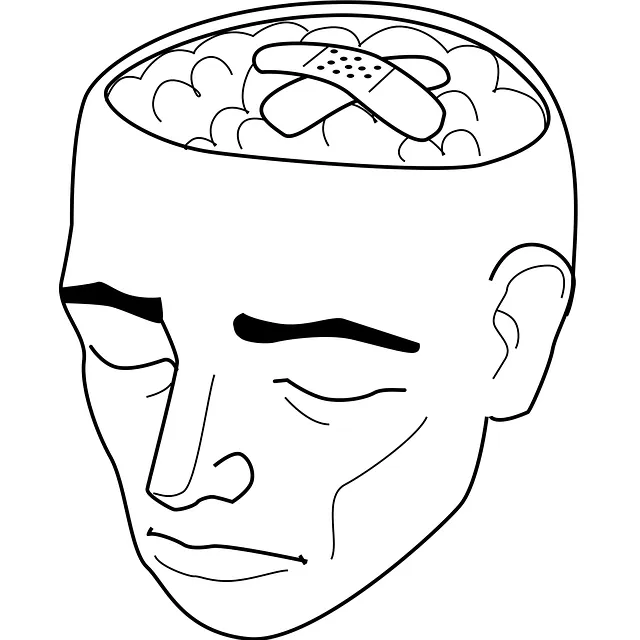Risk management is crucial in mental health practice, with professionals identifying and mitigating risks like self-harm or sensitive information disclosure. Inspired by Kaiser Permanente's approach, a comprehensive plan should include educational programs (like Social Skills Training), clear communication channels (e.g., dedicated Kaiser Permanente mental health appointment phone number in Golden), and strategies for emotional well-being promotion through self-care practices. These measures prioritize client welfare and practitioner resilience, enhancing the quality of care at Kaiser Permanente Golden, as evidenced by their proactive risk management strategy.
“In the realm of mental health services, effective risk management is paramount to ensuring patient safety and well-being. This article explores crucial aspects of risk management planning tailored for professionals in the field, drawing insights from Kaiser Permanente’s best practices. From understanding the nuances of risk assessment to implementing robust strategies, we delve into a comprehensive approach that fosters secure environments. Discover how organizations like Kaiser Permanente, with its dedicated mental health appointment phone number, Golden, enhance patient care through proactive risk mitigation.”
- Understanding Risk Management in Mental Health Practice
- Key Components of a Comprehensive Risk Plan
- Strategies for Effective Implementation and Continuous Improvement at Kaiser Permanente Mental Health Services
Understanding Risk Management in Mental Health Practice

Risk management is an integral part of ensuring safe and effective mental health practice, especially considering the sensitive nature of client interactions. For mental health professionals, understanding risk factors and implementing strategic mitigation plans is vital to fostering a supportive environment. This proactive approach aims to protect both clients and practitioners, as evidenced by initiatives like Kaiser Permanente’s commitment to mental health services, which includes comprehensive risk management strategies.
The process involves identifying potential risks, such as client self-harm or disclosure of sensitive information, and designing tailored interventions. Mental Health Education Programs focused on risk assessment and management are crucial tools for professionals. Additionally, cultural sensitivity in mental healthcare practice plays a significant role in recognizing diverse risk presentations. For instance, Social Skills Training can empower clients to navigate challenges and reduce potential risks associated with social interactions.
Key Components of a Comprehensive Risk Plan

A comprehensive risk management plan for mental health professionals should encompass several key components to effectively mitigate potential risks and promote client safety. Firstly, it’s imperative to establish clear communication channels, including a dedicated Kaiser Permanente mental health appointment phone number, Golden, for prompt access during emergencies or crises. This ensures that both clients and practitioners can reach out for support with ease.
Additionally, the plan should include strategies tailored to emotional well-being promotion techniques and empathy building. By integrating self-care practices into their workflow, mental health professionals can maintain optimal emotional balance, thereby enhancing their ability to offer empathetic support. These measures collectively contribute to a robust risk management framework that prioritizes both client welfare and practitioner resilience.
Strategies for Effective Implementation and Continuous Improvement at Kaiser Permanente Mental Health Services

At Kaiser Permanente Mental Health Services, effective risk management planning involves a multifaceted approach that combines robust strategies and continuous improvement initiatives. One key strategy is the implementation of Stress Management Workshops Organization, which equips professionals with essential tools and techniques to handle stress and maintain optimal mental well-being. These workshops not only foster a culture of self-care but also enhance interpersonal skills, including Conflict Resolution Techniques, thereby improving patient interactions and outcomes.
Additionally, regular feedback mechanisms and performance reviews play a crucial role in identifying areas for improvement. By encouraging open dialogue and continuous learning, Kaiser Permanente ensures that its mental health professionals stay updated with the latest best practices. This proactive approach not only mitigates potential risks but also strengthens the overall quality of care provided to patients seeking mental health services at their Golden location.
Risk management planning is an indispensable tool for mental health professionals, ensuring safe and effective care. By integrating strategies learned from Kaiser Permanente’s successful implementation, such as comprehensive risk assessments and continuous improvement, mental health practitioners can mitigate potential hazards. For those seeking guidance, the insights provided here, along with the Kaiser Permanente mental health appointment phone number in Golden, offer a solid foundation for creating robust risk management plans tailored to individual practice needs.






